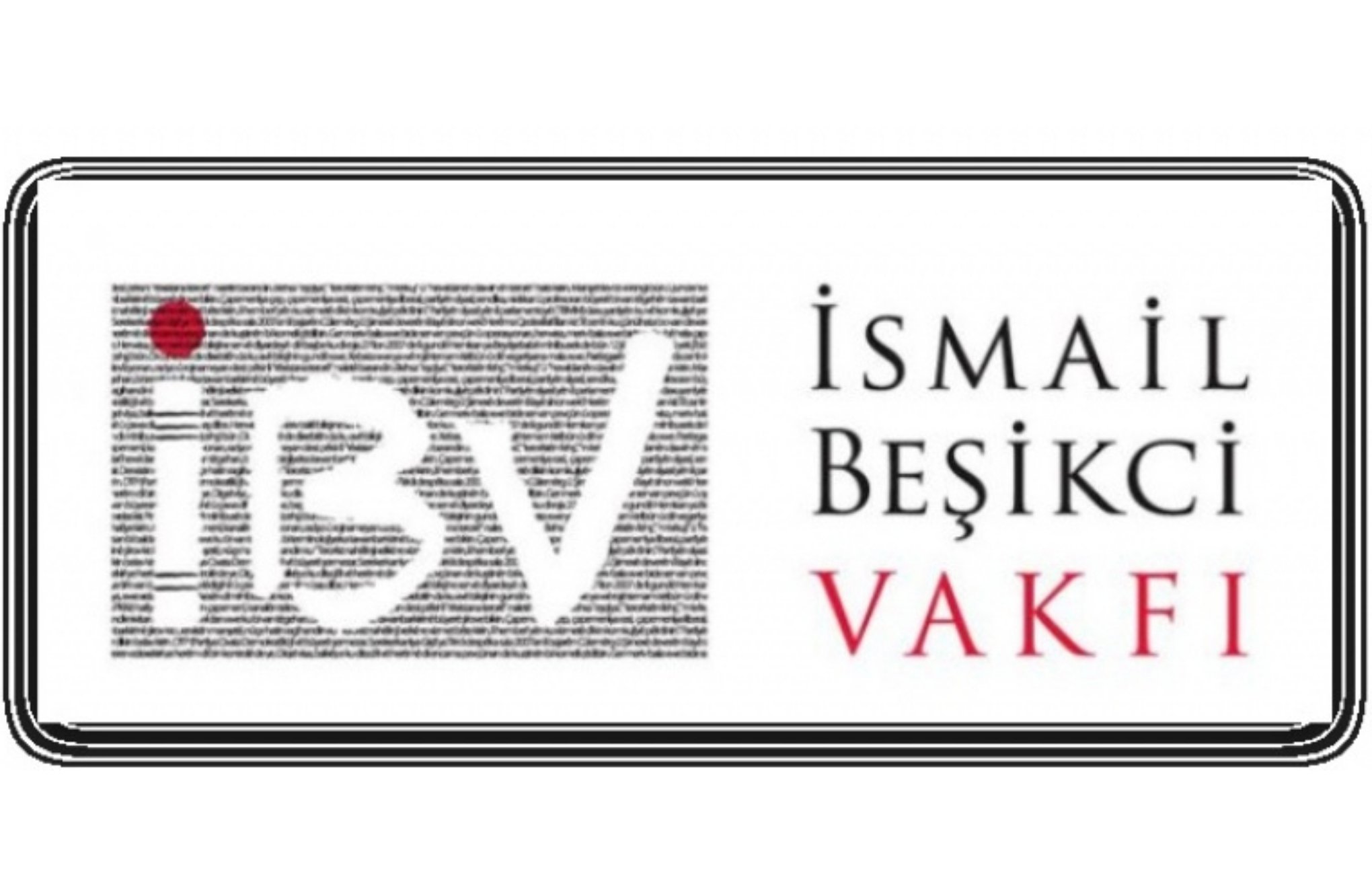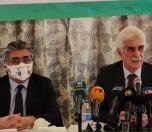Click to read the article in Turkish / Kurdish
The İsmail Beşikci Foundation has released its "Monitoring Work on Rights Violations Against Kurdish Artists Specific to Musicians."
Published in Kurdish, Turkish and English, the study aims to show the rights violations with their legal, political and cultural dimensions faced by Kurdish musicians and stage actors performing their arts mainly in Kurdish, and, by raising awareness about the violations, to contribute to the development of a civil and democratic cultural policy in which they can perform their art freely.
The study of the foundation demonstrates that discriminatory mentalities that begin from the legislative process when determining cultural policy are manifested at different levels, from not performing in state theatres to not providing material support for Kurdish art performance and the attitude of law enforcement agencies that arbitrarily prevent Kurdish art performance.
With the financial support of the European Union (EU), the İsmail Beşikci Foundation's study has included the Kurdish artists who began to take shape around Kurdish cultural institutions after the partial lifting of the ban on Kurdish in 1991 and who had the opportunity to perform their art in Turkey during the legalization of the public use of Kurdish after the 2000s.
For the study, semi-structured, in-depth interviews were conducted with 30 artists, 15 of whom were musicians and 15 actors, and two people who were also managers of Kurdish Cultural Institutions were interviewed.
The Foundation has underlined that although some recent reports addressing censorship and prohibitions in the field of culture and art include the rights violations suffered by Kurdish artists, there has been no independent study of the rights violations faced by Kurdish artists.
In this sense, this study, which aims to examine the rights violations faced by Kurdish artists while performing art in Kurdish, is a first in its field.
The work also recalls that the artists performing their art in Kurdish did not have a legal status because all Kurdish art activities were banned until the bans on the Kurdish language were lifted on a limited basis in 1991.
Artists cannot make ends meet
All of the interviewees said that they could not make a living through Kurdish art. Five interviewees stated that they were engaged in formal work such as teaching and municipal labour, which had nothing to do with art, while 11 interviewees said they were trying to make a living with freelance work from construction work, bellboy to stallholder.
Three people were working in local governments in a music and theatre-related job, but lost their jobs because of the trustees.
7 said they were trying to make a living through work that included performing programs, concerts, and private music tutoring.
In the wake of the state of emergency and the COVID-19 pandemic, the interviewees stated that there were almost no opportunities for art performance through concerts, festivals, and other events.
The four interviewees stated that they continued their art lives with the help of relatives, especially their spouses."
Rights violations arising from political atmosphere
The study notes that the fact that the use of cultural rights is closely related to the political atmosphere can be considered as one of the biggest indicators of the lack of the independence of art in Turkey:
"Unilaterally defining the limits of the autonomy of art and artists by public authorities is among the most important reasons for rights violations.
"Some of the interviewees rated the so-called 'Democratic Initiative' and 'Resolution Process' positively in terms of the use of cultural rights, especially between 2009 and 2015, while others stated that even the reforms in the process contained serious limitations and that cultural policy that aimed at cultural assimilation was continued with other means, even in places where language is granted freedom.
"While some interviewees said they faced the threat of violence or violence, it turned out that a certain level of self-censorship was practiced by the vast majority of artists in order to be able to continue their artistic practice."
Violence, threat, self-censorship
Interviewees were asked if they exercised self-censorship in the face of arbitrary practices and legal limitations in order to reveal the extent to which they could perform their art freely. They said that they tried to protect their freedom in general, but had to apply self-censorship in some cases especially for the use of certain words. They stated that they had two choices, such as not performing their art at all or performing their art by respecting certain limits without making too many concessions to their principles, and that they preferred the second way to perform their art.
Security threat perception, state law enforcement
It was expressed by the interviewees that performing Kurdish music is still considered a security issue. Although less so during the "Resolution Process", it was stated that security forces intervened arbitrarily in venues where music was performed, such as concert venues and cafes.
They especially noted that it became difficult for them to perform after each military conflict that resulted in human casualties, and in some cases their schedules were cancelled.
Some of the findings of the study are as follows:
- As a result of the study, it was determined that the artists were subjected to rights violations arising from the state's failure to fulfil its obligations to support the arts and the artist, and rights violations arising from the arbitrary implementation of the law.
- The cultural policy of the Republic of Turkey shows that it is still far from developing a cultural democracy that will give cultures other than Turkish the right to express themselves in public spaces. The permitted areas are also those where they are completely under the control of the state, such as TRT-6/TRT Kurdî.
- The state has taken a discriminatory stance in providing the venues, stages, and financial support for Kurdish art, preventing Kurdish artists from benefiting from public resources. These obstacles show that the state does not have a cultural policy that recognizes Kurdish art and aims for its development.
- It has been observed that there are cases where artists often apply self-censorship to cope with discriminatory and arbitrary practices in order not to face a legal obstacle.
- It has been seen that the lack of material conditions for artists to express their art freely has negatively affected their development of an independent artist identity by causing them to make a living in ways other than artistic work.
- In today's world, where it is not forbidden to sing and play in Kurdish, arbitrary approaches implemented by law enforcement and administrative structures leave Kurdish artists helpless who are legally deprived of the fight for rights. Artists do not have the financial conditions to fight the law and do not have professional organizations in which they can seek their rights in an organized way.
Recommendations
To summarize what needs to be done to protect the rights of artists who make Kurdish music and theatre and to prevent the violations of rights, the Foundation has briefly listed the following recommendations:
‣ It should be constitutionally guaranteed that the people who perform the art and the people who are addressed by the art with voice and language, such as theatre and music, should be educated in their mother tongue and the education system should immediately be renewed accordingly.
‣ Exclusionary and offensive statements about different peoples and religious communities should be removed from the school books. A curriculum based on cultural pluralism should be implemented.
‣ The legal regulations regarding the recognition and public use of Kurdish must be constitutionally guaranteed by including them in the constitution. Constitutional guarantee is essential as the rights granted by law can be easily restored by law.
‣ In addition to constitutional and legal regulations, regulations that impose obligations on some institutions and organizations to include Kurdish art should be implemented. These regulations should be implemented in the company of a multicultural art policy and together with artists. Kurdish art and artists should be given wide space in state theatres, city theatres, cultural centres affiliated with the state and municipalities. They should be obliged to include Kurdish Plays, concerts, etc. in their annual programs.
‣ Administrative authorities, especially law enforcement officers, who act arbitrarily in violation of international conventions aiming to protect universal principles and legal regulations in domestic law, should be informed and, if necessary, internal training should be provided.
‣ Legal action should be taken against public officials who arbitrarily violate the rights of those who make Kurdish music and theatre. In addition, deterrent legal actions should be taken against other persons who violate their rights.
‣ Kurdish artists should benefit equally from the share allocated by state institutions to art and artists. The Ministry of Culture should support Kurdish music, theatre, and cinema without discrimination. City Theatres and State Theatres should open all their stages to Kurdish plays.
‣ Regulations for Kurdish art should be carried out not as part of political processes such as the "adaptation process" or "Resolution Process", but as an indispensable fundamental right.
‣ Kurdish art should be included in the curriculum at every stage of education. Departments of Fine Arts and Conservatories should also open Kurdish music and theatre departments in universities.
‣ International institutions should play their supervisory and awareness- raising roles more effectively. It is only necessary to know that legal changes are not sufficient for a right to be exercised. Reporting is vital in this regard; they need to be increased and disseminated.
‣ Kurdish art producers who do not receive sufficient financial assistance from the state also lack the support form universities, municipalities, and NGOs. Separate sources of international funds must be allocated for Kurdish art makers.
‣ Festivals, biennials, exhibitions, etc. should be organized by institutions, especially municipalities, in order to increase the public visibility of the Kurdish language and art. The content of these activities should be left entirely to artist initiatives and should not be interfered with by the state or public institutions. (KÖ/SD)






-132.jpg)